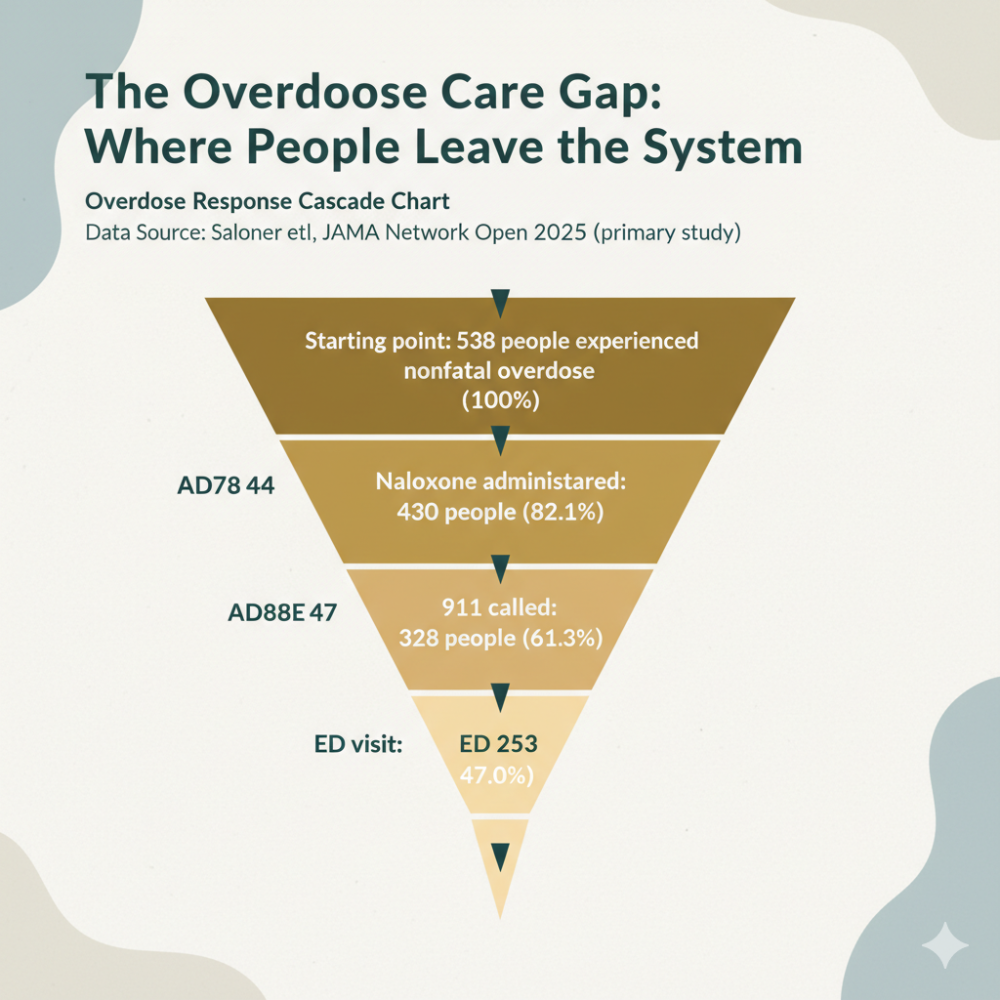The Dangers of Combining Gabapentin & Hydrocodone (Vicodin)
It’s not uncommon for individuals to take multiple medications to address various health concerns. However, certain drug combinations can lead to severe complications if not adequately monitored. One such potentially hazardous combination is that of gabapentin and hydrocodone.
Gabapentin, commonly prescribed for nerve pain and certain types of seizures, acts on the central nervous system (CNS). Hydrocodone, on the other hand, is a narcotic pain medication often prescribed for moderate to severe pain. While both drugs play crucial roles in managing health conditions, their combined effects on the CNS can be dangerous.
Gabapentin: Uses and Side Effects
Gabapentin, originally developed for treating epilepsy, is a drug primarily used to manage neuropathic pain and to control seizures in patients with epilepsy. Its mechanism of action is not entirely understood, but it is believed to mimic the activity of one of the brain’s primary inhibitory neurotransmitters, gamma-aminobutyric acid (GABA). However, it’s worth noting that gabapentin doesn’t act on the same brain receptors as GABA and doesn’t influence GABA synthesis or uptake.
Over the years, the therapeutic use of gabapentin has expanded. Besides its initial use in epilepsy, it has found its way into the treatment regimen of various conditions, including:
- Neuropathic Pain: Particularly in conditions like postherpetic neuralgia (pain from shingles), diabetic neuropathy, and spinal cord injuries.
- Restless Leg Syndrome (RLS): Gabapentin can help alleviate the uncomfortable sensations in the legs that characterize RLS.
- Fibromyalgia: Some patients have reported relief from the chronic pain and fatigue of fibromyalgia with the aid of gabapentin.
- Hot Flashes: Some women dealing with menopause find gabapentin helpful in managing hot flashes.
- Anxiety Disorders: Although not a primary treatment, gabapentin has been used as an adjunct therapy in certain anxiety conditions.
It’s essential to recognize the importance of this drug in treating various conditions, but equally vital to be aware of its potential interactions, especially with other CNS depressants like hydrocodone.
Side Effects of Gabapentin
Gabapentin, while beneficial in treating a range of conditions, can also lead to various side effects. These reactions can range from mild to severe. If you’re taking gabapentin or considering starting it, it’s essential to be aware of these potential side effects:
Common Side Effects:
These symptoms might be bothersome but are generally not considered serious. However, if they persist or become severe, consult your doctor:
- Drowsiness
- Tiredness or weakness
- Dizziness
- Headache
- Uncontrollable shaking of a part of the body
- Double or blurred vision
- Unsteadiness
- Anxiety
- Memory problems
- Strange or unusual thoughts
- Unwanted eye movements
- Nausea and vomiting
- Heartburn
- Diarrhea
- Dry mouth
- Constipation
- Increased appetite
- Weight gain
- Swelling of the hands, feet, ankles, or lower legs
- Back or joint pain
- Fever
- Flu-like symptoms, including runny nose, sneezing, cough, and sore throat
- Ear pain
- Red, itchy eyes (sometimes accompanied by swelling or discharge)
Serious Side Effects:
These reactions are more severe and require immediate attention. If you experience any of the following symptoms, contact your doctor immediately:
- Rash
- Itching
- Swelling of the face, throat, tongue, lips, or eyes
- Hoarseness or difficulty speaking
- Difficulty swallowing
- Difficulty breathing
- Seizures
- Bluish-tinged skin, lips, or fingernails
- Confusion
- Extreme sleepiness
It’s crucial to monitor any reactions or changes in your body while on gabapentin. By doing so, and by communicating with your healthcare provider, you can ensure that you’re using the medication safely and effectively.
Hydrocodone: Uses and Side Effects
Hydrocodone is a powerful prescription medication primarily known for its analgesic or pain-relieving properties. It belongs to the opioid class of drugs, which work by binding to specific receptors in the brain and spinal cord to block pain perception.
Derived from codeine, an opioid alkaloid found in the opium poppy, hydrocodone has been used for its medicinal properties for decades. It is commonly prescribed to treat moderate to severe pain and, in some formulations, to suppress persistent coughs. Due to its effectiveness, it is frequently found in combination with other non-opioid pain relievers, such as acetaminophen, to enhance its analgesic effect.
While hydrocodone is effective in managing pain, it’s not without risks. As with other opioids, the potential for dependence, addiction, and overdose is significant. Even when taken as prescribed, hydrocodone can lead to physical dependence, meaning that over time, a patient may require higher doses to achieve the same pain-relieving effect. This phenomenon, known as tolerance, can set individuals on a path toward escalating doses and potentially dangerous situations.
Due to its potential for misuse and addiction, hydrocodone is classified as a Schedule II controlled substance in many countries, including the United States. This classification means it’s subject to strict regulations regarding its prescription and dispensation. Authorities have placed such controls to minimize the risks of diversion, misuse, and associated harm to individuals and the broader community.
Side Effects of Hydrocodone
Hydrocodone, like many medications, can result in a range of side effects. Patients taking hydrocodone should be vigilant in monitoring their reactions to the drug, and it’s crucial to be aware of both common and more severe potential side effects.
Common Side Effects:
These symptoms may be mild but can be bothersome. Always inform your doctor if they persist or become severe:
- Stomach pain
- Dry mouth
- Tiredness
- Headache
- Back pain
- Muscle tightening
- Difficult, frequent, or painful urination
- Ringing in the ears
- Difficulty falling asleep or staying asleep
- Foot, leg, or ankle swelling
- Uncontrollable shaking of a part of the body
Serious Side Effects:
These reactions require immediate attention. If you experience any of the following symptoms or those mentioned in specific warning sections provided with the medication, promptly seek medical help:
- Chest pain
- Agitation
- Hallucinations (seeing or hearing things that are not real)
- Fever, sweating, and confusion
- Fast heartbeat and shivering
- Severe muscle stiffness, twitching, or loss of coordination
- Nausea, vomiting, loss of appetite, weakness, or dizziness
- Inability to achieve or maintain an erection
- Irregular menstruation
- Decreased sexual desire
- Swelling of the eyes, face, lips, tongue, or throat
- Hoarseness or changes in the voice
- Changes in heartbeat
- Hives or rash
- Intense itching
- Difficulty swallowing or breathing
It’s worth noting that this list is not exhaustive. Hydrocodone might cause other side effects not listed here. If you encounter any unusual problems or reactions while taking hydrocodone, it’s essential to reach out to your healthcare provider for guidance and potential adjustments to your treatment.
The Risks of Mixing Gabapentin and Hydrocodone
When combined, gabapentin and hydrocodone can amplify each other’s effects on the central nervous system. This synergistic effect can result in:
- Respiratory Depression: The combined CNS depressant effects can slow down breathing to dangerously low levels, depriving the body of essential oxygen.
- Coma: Severe CNS depression can lead to a state of unconsciousness from which the patient cannot be easily awakened.
- Death: In extreme cases, the combined effects can be fatal, particularly when taken in higher-than-recommended doses.
Understanding Respiratory Depression
Respiratory depression, also referred to as hypoventilation, is a serious and potentially life-threatening condition where the rate and depth of breathing decrease, leading to insufficient oxygen intake and increased carbon dioxide in the bloodstream. Essentially, it’s a reduction in the effectiveness and efficiency of breathing.
Causes of Respiratory Depression:
- Medications: Many medications, especially central nervous system (CNS) depressants, can cause respiratory depression. Opioids like hydrocodone are a primary concern as they directly suppress the brain’s respiratory center. Other drugs, including certain sedatives, anesthetics, and even some antidepressants, can also lead to respiratory depression.
- Brain Injury: Trauma or conditions that affect the brain, particularly the brainstem where the respiratory center is located, can impede the brain’s ability to regulate breathing.
- Lung Diseases: Conditions like chronic obstructive pulmonary disease (COPD) and pneumonia can reduce lung function, leading to hypoventilation.
- Neuromuscular Disorders: Diseases that affect the nerves controlling the respiratory muscles, such as amyotrophic lateral sclerosis (ALS) or myasthenia gravis, can result in weakened breathing.
- Sleep Apnea: A condition where breathing repeatedly stops and starts during sleep, often leading to periods of hypoventilation.
Symptoms of Respiratory Depression:
- Shallow or slow breathing
- Shortness of breath or difficulty breathing
- Feeling lightheaded or dizzy
- Fatigue or weakness
- Confusion or disorientation
- Bluish coloration of the skin or lips (cyanosis)
- Decreased responsiveness or loss of consciousness
The primary concern with respiratory depression is the lack of oxygen reaching the body’s tissues (hypoxia) and the buildup of carbon dioxide (hypercapnia). These imbalances can lead to:
- Organ damage, especially to the brain and heart
- Acidosis, a condition where the blood becomes too acidic
- Cardiac arrest or heart failure
- Coma or death
Respiratory depression is a significant concern, especially in the context of increasing opioid usage. Awareness of the signs, symptoms, and causes of respiratory depression is crucial, both for healthcare professionals and the general public, to ensure timely intervention and prevent complications.
If you’ve been prescribed both gabapentin and hydrocodone, it’s essential to:
- Consult Your Doctor: Always discuss potential drug interactions with your healthcare provider. They may offer alternative medications or adjust dosages to mitigate risks.
- Avoid Alcohol and Self-medication: Combining these drugs with alcohol or taking them in ways not prescribed can heighten the risk of adverse effects.
- Stay Aware of Impairment: As both drugs can cause drowsiness, dizziness, and impair judgment and coordination, it’s critical to refrain from activities like driving or operating machinery until you’re sure of their impact on your alertness.
- Report All Medications: Inform your doctor about all the medications, vitamins, and herbs you’re currently using to ensure there are no unforeseen interactions.
- Never Stop Abruptly: Stopping medications suddenly can have its own set of risks. Always consult with your doctor before making any changes to your medication regimen.
Help is Available
The combination of gabapentin and hydrocodone poses significant risks, including the potential for respiratory depression. As our understanding of these medications and their interactions grows, so does the necessity for education, caution, and appropriate intervention when complications arise. Whether you’re a patient, caregiver, or concerned loved one, it’s essential to be aware of the potential dangers and to ensure that medications are taken under the careful guidance of healthcare professionals.
For those struggling with addiction, particularly to opioids like Tramadol, there are dedicated resources and facilities designed to provide specialized care. Gallus Medical Detox Centers, with locations in Denver, Phoenix, Dallas, and Houston, offers medically-supervised detox for drugs and alcohol. Recognizing the need for assistance is the first step toward recovery. If you or someone you know may benefit from detox services, consider taking a self-assessment offered by Gallus Detox to evaluate the need for detox.
For more immediate concerns or to discuss potential treatment options, you can reach Gallus Detox directly at 866-272-5978. Remember, seeking help is a sign of strength, and there are dedicated professionals ready to assist in the journey to recovery.
FAQs About Gabapentin and Hydrocodone
What is gabapentin used for?
Gabapentin is primarily prescribed to treat nerve pain and seizures. It’s also used in certain cases to treat restless legs syndrome and postherpetic neuralgia.
How does hydrocodone relieve pain?
Hydrocodone is an opioid analgesic that works by binding to specific receptors in the brain and spinal cord, blocking the perception of pain.
Can I take gabapentin and hydrocodone together?
While both medications can be prescribed together under the guidance of a healthcare professional, it’s essential to be aware of the potential risks, including respiratory depression. Always consult with your doctor about potential interactions.
What should I do if I experience severe side effects from either medication?
If you experience severe side effects like difficulty breathing, rash, swelling of the face, or any signs of overdose, seek emergency medical attention immediately.
What is the primary concern with respiratory depression?
The main danger with respiratory depression is the lack of sufficient oxygen reaching body tissues and the buildup of carbon dioxide in the bloodstream, which can lead to organ damage, cardiac issues, and even death.
Can I drink alcohol while on gabapentin or hydrocodone?
It’s recommended to avoid alcohol when taking either gabapentin or hydrocodone. Combining alcohol with these medications increases the risk of severe side effects, including respiratory depression.
What should I do in case of a suspected overdose?
In the event of a suspected overdose, call emergency services immediately. If available, administer naloxone in the case of an opioid overdose, but still seek emergency medical care.
References
- Gabapentin: Uses, dosage, side effects, warnings. (n.d.-b). Drugs.com. https://www.drugs.com/gabapentin.html
- Gabapentin: MedlinePlus drug information. (n.d.-b). https://medlineplus.gov/druginfo/meds/a694007.html
- Hydrocodone | DEA.gov. (n.d.). https://www.dea.gov/galleries/drug-images/hydrocodone
- Hydrocodone: MedlinePlus drug information. (n.d.-b). https://medlineplus.gov/druginfo/meds/a614045.html
- Drug Interaction Report: gabapentin, hydrocodone. (n.d.). Drugs.com. https://www.drugs.com/interactions-check.php?drug_list=1147-0,2874-0
- Boom, M., Niesters, M., Sarton, E., Aarts, L., Smith, T., & Dahan, A. (2012d). Non-Analgesic effects of Opioids: Opioid-induced respiratory depression. Current Pharmaceutical Design, 18(37), 5994–6004. https://doi.org/10.2174/138161212803582469
- Bhutta, B. S. (2022d, August 9). Hypoxia. StatPearls – NCBI Bookshelf. https://www.ncbi.nlm.nih.gov/books/NBK482316/
- Rawat, D. (2023, July 24). Hypercapnea. StatPearls – NCBI Bookshelf. https://www.ncbi.nlm.nih.gov/books/NBK500012/


 Steve B
Steve B 
